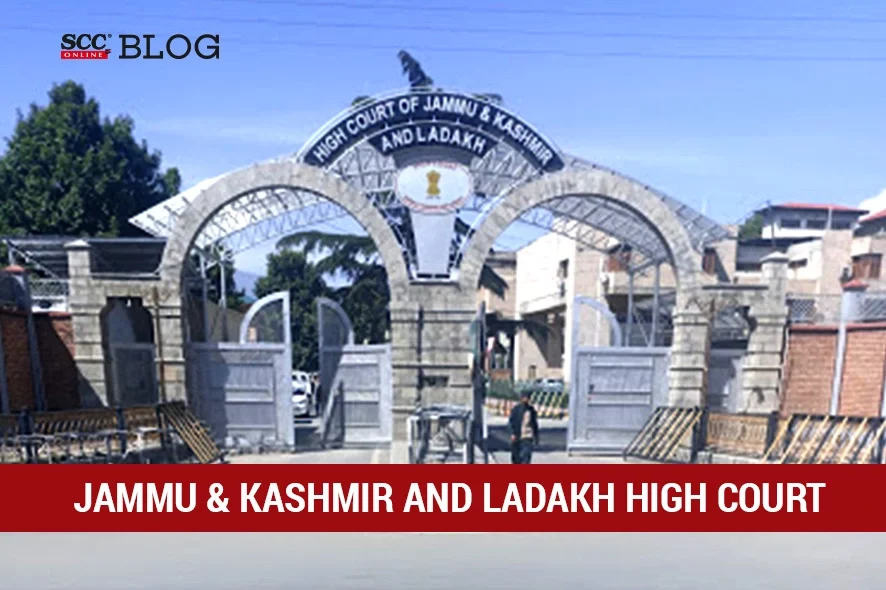Jammu and Kashmir and Ladakh High Court: In an instant petition, where the petitioners were employed on contractual/contingency/consolidated/need basis, were disengaged on the recommendation of Anti-Corruption Bureau (ACB) by the Jammu Kashmir Handicrafts Corporation; a Single Judge Bench of M. A. Chowdhary, J.,* quashed the impugned order dated 16-09-2022 and directed the respondent corporation, J&K Handloom Corporation (JKHC) to re-engage the petitioners on their assigned duties. Placing reliance on several Supreme Court precedents, the Court pointed out that if an order is founded on allegations, the order is stigmatic and punitive, then services of an employee cannot be dispensed with without affording him an opportunity of defending the accusations/allegations made against him in a full-fledged inquiry. “Hence, it is settled law that even a contractual appointment cannot be terminated without affording an opportunity of hearing, if founded on allegation and/or misconduct, which casts a stigma on such an employee”.
Background:
In the instant petition, the petitioners were engaged in the respondent corporation on contractual basis. however, the petitioners’ services were unexpectedly discontinued after the Anti-Corruption Bureau (ACB) issued an ‘Alert Note,’ alleging irregularities in their appointments. Aggrieved, the petitioners challenged the order.
The petitioners submitted that without affording any opportunity of being heard, their services were disengaged on the recommendations of ACB, when it was incumbent upon the Managing Director to provide an opportunity of being heard to the petitioners by following the principle of natural justice and due course of law. They further added that their Right of enquiry as well as Article 311 of the Constitution was violated.
Per contra, the respondents contended that the petitioners filed the instant petition without any cause of action. They further submitted that a complaint was lodged by employees of the respondent corporation to ACB against the Ex-Managing Director, alleging therein the appointments of at least 15 persons made by him against financial consideration and without any advertisement or approval of the competent authority.
Respondents further added that contractual employment has no vested right to continue and it is not open for Court to direct an employer to continue the contract, thus, law is settled.
Respondents further relied on the landmark judgements by Supreme Court and added there was no illegality in passing the disengagement order against the petitioner.
Court’s Assessment:
The Court considered the judgement passed by the Supreme Court in Director General of Police v. Mrityunjoy Sarkar, (1996) 8 SCC 280, wherein the court had laid stress on the importance of principles of natural justice in instances of stigmatic discharge orders.
The Court also considered the Supreme Court decision in in K.C. Joshi v. Union Of India (1985) 3 SCC 153 wherein it had opined that contract of service has to be in tune with Articles 14 and 16 of the Constitution and any punitive action can be taken only after a proper inquiry but the same was violated in this case as the petitioner was not given a chance of inquiry, which also violates the principle of natural justice.
Perusing the facts, contentions, and relevant precedents, the Court thus held that the impugned order of disengagement had been passed on account of abuse of powers by the appointing authority without holding a proper enquiry in the matter. It was further pointed out that since the instant case the petitioners were engaged on consolidated/need/contractual/contingency basis in the respondent-corporation, thus looking at the law with respect to stigmatic order, in the context of tenure appointments, the Court was of the view that disengagement of petitioners from services is not only unreasonable but also penal in nature.
Thus, the Court allowed the petition and quashed the impugned order and alert notice issued by the Managing Director of the JKHC and ACB respectively. Respondents were directed to allow petitioner to perform their duties and pay wages. It was further ordered to release the withheld wages duly earned by the petitioner. It was added that the order shall be first examined by the Committee constituted by the Government and thereafter by the Board of Directors of the Corporation.
[Feroz Ahmed Sheikh v. Union Territory of J&K, 2023 SCC OnLine J&K 1095, decided on 16-12-2023]
*Judgement by Justice M.A. Chowdhary
Advocates who appeared in this case :
For petitioners: Z.A. Qureshi, Adv, Monisa Manzoor, Senior Adv.
For respondents: Abdul Rashid Malik, Senior AAG with Younis Hafiz, Assisting Counsel








